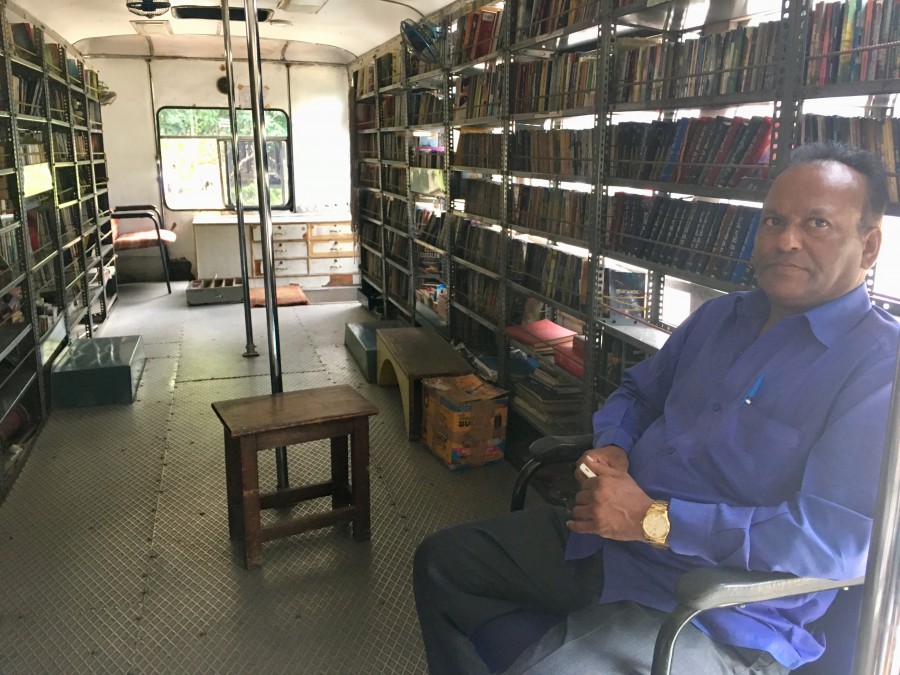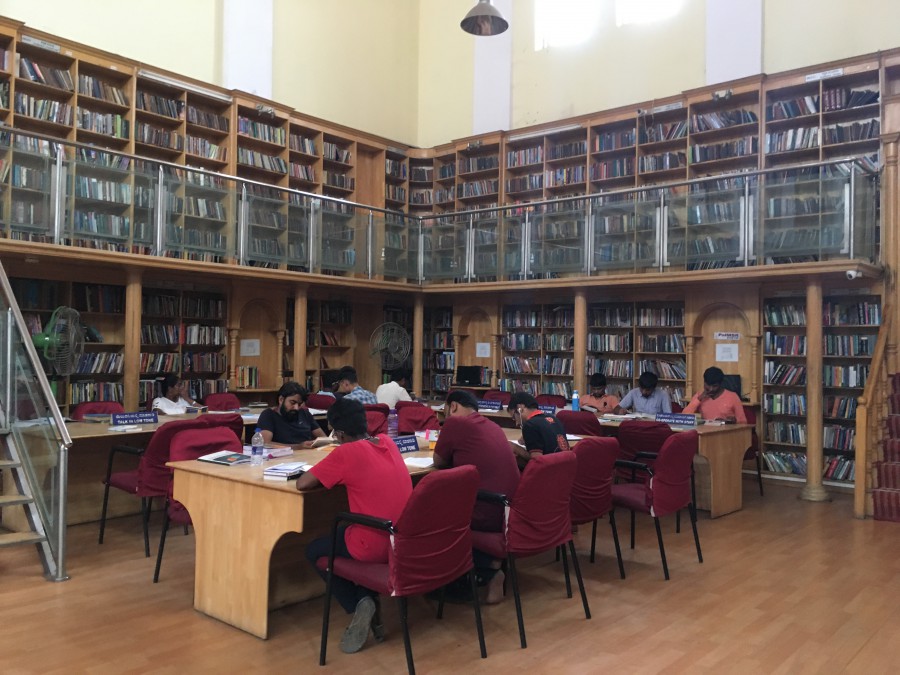
- Home
- India
- World
- Premium
- THE FEDERAL SPECIAL
- Analysis
- States
- Perspective
- Videos
- Sports
- Education
- Entertainment
- Elections
- Features
- Health
- Business
- Series
- In memoriam: Sheikh Mujibur Rahman
- Bishnoi's Men
- NEET TANGLE
- Economy Series
- Earth Day
- Kashmir’s Frozen Turbulence
- India@75
- The legend of Ramjanmabhoomi
- Liberalisation@30
- How to tame a dragon
- Celebrating biodiversity
- Farm Matters
- 50 days of solitude
- Bringing Migrants Home
- Budget 2020
- Jharkhand Votes
- The Federal Investigates
- The Federal Impact
- Vanishing Sand
- Gandhi @ 150
- Andhra Today
- Field report
- Operation Gulmarg
- Pandemic @1 Mn in India
- The Federal Year-End
- The Zero Year
- Science
- Brand studio
- Newsletter
- Elections 2024
- Events
- Home
- IndiaIndia
- World
- Analysis
- StatesStates
- PerspectivePerspective
- VideosVideos
- Sports
- Education
- Entertainment
- ElectionsElections
- Features
- Health
- BusinessBusiness
- Premium
- Loading...
Premium - Events

Libraries are shutting down — but not because of dearth of readers

Located at the heart of the city, Cubbon Park in Bengaluru attracts many visitors on the weekends. It is the perfect place to sit on the concrete benches beneath a thicket of evergreen trees or on lush green lawns and read. While most bring their own books, a few walk over to the mobile library parked nearby and borrow an interesting read. A bus-turned-mobile library is stationed inside the...
Located at the heart of the city, Cubbon Park in Bengaluru attracts many visitors on the weekends. It is the perfect place to sit on the concrete benches beneath a thicket of evergreen trees or on lush green lawns and read. While most bring their own books, a few walk over to the mobile library parked nearby and borrow an interesting read.
A bus-turned-mobile library is stationed inside the park. A collection of predominantly old Kannada novels and non-fiction books are stacked on adjustable iron racks. A couple of wooden stools and iron boxes serve as the seating arrangement for those who want to sit inside.
The mobile library, which makes pits stops at various locations over the week, parks at Cubbon Park on Sundays. Two hours after opening shop, it has barely attracted visitors. John Celestine, 57, is the driver and in-charge. He has worked as the librarian of the mobile library since 1993. Even as states like Karnataka and Kerala observed June 19 to July 18 as reading month to commemorate the birth anniversary of PN Panicker, the pioneer of the library movement in India, most passers-by choose not to stop by the library.
Seeing people walk past his library doesn’t bother Celestine. He says that while the membership hasn’t dropped much over the years, the number of people borrowing books has reduced drastically. He adds that mobile libraries attract some crowd during summer holidays but not otherwise. On an average he sees 15 customers a day. The lifetime membership that allows one to borrow three books anytime costs ₹100 per person. In the age of e-libraries, gone are the days where people stand in queue to borrow books from us, he says.

Bengaluru’s transition into a cosmopolitan city has also affected the mobile library. “The inflow of people is about 40 per cent of what it used to be five years ago. People in certain areas of the city look for new collections and books in other regional languages besides Kannada. We do not have many books they look for,” Celestine adds.
Of the three mobile libraries, the government shut down one recently and did not replace it. Celestine says the remaining two buses carry registered membership of about 12,000 subscribers. It used to be about 18,000 a decade ago. About 20 per cent of its customers are senior citizens, 50 per cent housewives, about 10 per cent children, and the rest of the middle-age group.
Public libraries are uncared for
About 300 metres away from the bus is the city’s Central Library. Barring a few chairs, the library, with a seating capacity of 120 people, was fully occupied. The scene is similar across public libraries in the city. Many come to either read newspapers and magazines or come in search of reference material for college.
Shivaraman M, 80, visits three public libraries around his house in the city. “I spend an hour or two reading vernacular language newspapers. I am not a subscriber here but I have been visiting for the past 20 years because it’s free.”
A student, 26-year-old Mahalakshmi M, preparing for her chartered accountancy course, visits a public library for its sheer silence. She packs food and bring reference materials and books and sits in the library campus in Indiranagar from 10.30 in the morning till 6 in the evening.

With varying levels of legislations, financing and quality of service, public libraries in India face a host of challenges besides the dwindling crowd. Does it mean to say people do not read books? No. Experts suggest that since the purchasing power of people has gone up in recent years, people prefer buying books rather than borrowing them.
In India, 19 states have passed state library legislations, while only five had the provision of a library cess or tax levy. States with a lower literacy rate lacked library legislations, according to a 2018 research paper titled ‘A Policy Review of Public Libraries in India’, authored by Preedip Balaji, library consultant at Indian Institute of Human Settlement.
Balaji, who wrote an article in IndiaSpend on how much India spends on its public libraries, says that an RTI query sent to the Ministry of Culture revealed that there was no official data available on the per capita expenditure on public libraries in India.
According to the International Federation of Library Associations and Institutions standards, there should be one public library for every 3,000 people. There were 70,817 libraries in rural areas and 4,580 in urban areas in the country, according to the 2011 Census. This translates to one library in rural areas for every 11,500 people, and one urban library for over 80,000 people.
Calling for a movement on open access to libraries, Balaji cites the example of the Central Library Zurich, Switzerland. The state, city and the government university joined hands to open the library to the public, without people requiring a membership or fees to access its resources, he says. “In Switzerland, many libraries provide unlimited borrowing and access to public library resources. In India, even public funded libraries in private spaces limit access to citizens. That needs to change,” Balaji says.
Tamil Nadu has the highest library cess at 10 per cent, Andhra Pradeesh 8 per cent, Karnataka 6 per cent and Kerala about 5 per cent. Even though most states collect library cess, they do not remit the same to the libraries department as required, and it hampers the quality of supply of books and infrastructure facility in libraries. Vacant posts at libraries is another concern.
For instance, in Tamil Nadu, a contempt petition was filed in 2017 in the Madurai Bench of the Madras High Court against municipal administration for non-payment of library cess as directed by the court. Reports indicate even the Anna Centenary Library in Chennai, which was rebuilt at the cost of ₹170 crore in 3.3 lakh sq ft of land, is being neglected by government bodies.
In Karnataka, the civic body in Bengaluru, grama panchayats and the municipal administration in various districts owe the libraries funds to the tune of ₹479 crore in total for the past five years, says Satish Kumar Hosamani, director, department of public libraries. “A large section of the society still shows interest in public libraries. Many students come to Central Library to read and refer competitive exam books. But lack of funds is a constraint for us. We cannot buy adequate books to cater to the public demand,” Hosamani says. Also, about 40 per cent of the sanctioned posts of 1,481 librarians and staff are vacant in Karnataka.
Private libraries thrive but how?
While public libraries struggle to attract a crowd, private libraries have sprung up across cities in recent years. In contrast to public libraries, the private ones are tech-savvy, home deliver books and have the latest collection of novels.
Bengaluru-based Suresh Narasimha, chairperson of JustBooks — a chain of 80 libraries across four cities of Bengaluru, Pune, Chennai and Hyderabad — says that today, libraries need to go beyond books and become activity hubs to attract customers. JustBooks targets the middle-class segment and young parents in upmarket areas.
“Our stores are tech enabled. Most of our customers do not even visit our stores. They order online and we deliver it to their homes. It’s like a gym subscription. Once people pay for it, they’ll use it a minimum number of times every month!” Narasimha says.
“The location of the store, the technology and selection of new authors that we provide keep our customers happy. Besides, we engage them by organising reading workshops and competitions for kids,” Narasimha says. JustBooks claims to be profitable, clocking in double digit growth in revenue every year.
But not everyone agrees with the concept of home delivering books or succumbing to technology. Lack of patrons have killed some private libraries. Eloor Lending Libraries, which has been running for the past four decades, shut three of its centres in Kolkata, Delhi and Chennai in the past couple of years.
“We charge about 10 per cent of the book price and we haven’t changed our rates in four decades. While we struggle to build our brand, bring in softwares to tech enable the libraries, we operate at marginal profits. People think even this is costly but they buy books online at a higher price,” says Luiz, managing partner at Eloor.
Luiz, who took over his father’s legacy of running libraries, says, while it was painful for him to shut the Chennai centre, it was more painful to see that people came to buy books at 80 per cent discount when closing it and the police had to control them. “Even if half the people who came forward to buy books had rented them, there wouldn’t have been a need for us to shutdown the more than two decade old centre,” Luiz adds.
